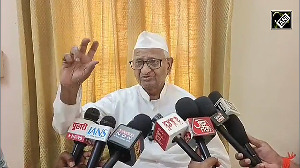The United States has again ruled out a nuclear deal with Pakistan "just because it has signed a civilian nuclear agreement with India" maintaining that "a very different situation" exists between the two Asian countries.
"This is not something that should be viewed as somehow an action that we take with India requires a similar action in the case of Pakistan," US State Department Deputy Spokesman Tom Casey said.
"We've also been very clear that because of the issues with proliferation from Pakistan that it's a very different situation between those two countries. And the fact that we have this agreement with India now is a clear recognition that there is a real difference," he said.
"India has been a responsible actor. It's been outside the nonproliferation regimes, but it's actually behaved responsibly. It hasn't proliferated weapons technology.
"We've taken one more step closer toward bringing the vast majority of India's nuclear capabilities, specifically their civilian nuclear side, into the nonproliferation mainstream. It's something the IAEA believes so as well," he added.
"We have a very important relationship with Pakistan. We particularly have it to combat the threat of terrorism posed by Al Qaeda and other extremist groups.
"We also want to see that there be dialogue between India and Pakistan, dialogue that has expanded and has grown under the leadership of President Musharraf and others," Casey said.






 © 2025
© 2025